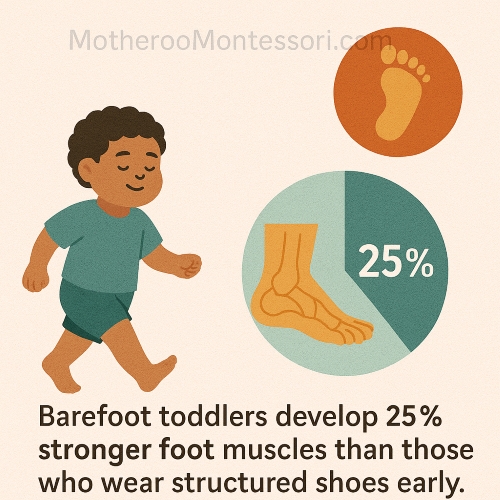The “7-7-7 Rule” is a parenting framework that aligns with key developmental stages in a child’s life, emphasizing different parental roles and approaches as children grow. This article examines the scientific evidence supporting this approach across three distinct 7-year periods: play (0-7 years), teaching (7-14 years), and advising (14-21 years).
The First Seven Years (0-7): The Importance of Play
During the first seven years, the 7-7-7 rule emphasizes the critical role of play in child development. Research strongly supports this approach, highlighting play as essential for cognitive, social, and emotional growth.
A comprehensive review by Yogman et al. (2018) underscores the importance of play in promoting executive functioning, language development, and math skills. The authors note that play enhances brain structure and function, particularly in the prefrontal cortex, which is crucial for cognitive and emotional regulation[1].
Furthermore, Whitebread et al. (2017) found that play-based learning in early childhood education positively impacts children’s self-regulation skills, social competence, and academic achievement. Their research indicates that child-initiated play, guided by adults, is particularly beneficial for development[2].
These findings align with the 7-7-7 rule’s emphasis on providing a safe, stimulating environment for exploration and play during the first seven years. Parents play a vital role in facilitating this play-based learning, which lays the foundation for future development.
The Elementary Years (7-14): The Teaching Phase
The second phase of the 7-7-7 rule focuses on teaching, coinciding with children’s increased capacity for structured learning and social skill development.
A longitudinal study by Durlak et al. (2011) demonstrated the effectiveness of social and emotional learning (SEL) programs during this period. Their meta-analysis of 213 school-based SEL programs showed significant improvements in social and emotional skills, attitudes, behavior, and academic performance[3].
Regarding the development of faith and spirituality, which the 7-7-7 rule emphasizes during this period, Holder et al. (2016) found a positive correlation between spirituality and happiness in children aged 8-12. Their research suggests that nurturing spirituality during this phase can contribute to overall well-being[4].
The importance of parental involvement in teaching during these years is further supported by Castro et al. (2015). Their meta-analysis revealed that parental involvement in children’s learning activities at home had a significant positive effect on academic achievement[5].
The Final Seven Years (14-21): The Advisory Role
The last phase of the 7-7-7 rule focuses on advising adolescents as they develop independence. This approach is supported by research on adolescent development and parenting strategies.
A study by Steinberg and Silk (2002) highlights the importance of authoritative parenting during adolescence. This parenting style, characterized by high responsiveness and high demandingness, is associated with better psychosocial adjustment, school performance, and fewer behavior problems in adolescents[6].
Regarding the development of independence, Allen et al. (2016) found that adolescents who were encouraged to express their own views in family discussions showed greater autonomy and social competence. This supports the 7-7-7 rule’s emphasis on respecting adolescents’ choices while providing guidance[7].
Lastly, Telzer et al. (2015) demonstrated that positive family relationships during adolescence are associated with reduced risk-taking behaviors. Their neuroimaging study showed that adolescents with more supportive families exhibited less activation in brain regions associated with risk-taking when making decisions[8].
Conclusion
The 7-7-7 rule aligns well with current research on child and adolescent development. Evidence supports the emphasis on play in early childhood, structured teaching and social-emotional learning in middle childhood, and an advisory role during adolescence. While individual differences should always be considered, this framework provides a solid, evidence-based approach to parenting across developmental stages.
References
[1] Yogman, M., Garner, A., Hutchinson, J., Hirsh-Pasek, K., & Golinkoff, R. M. (2018). The Power of Play: A Pediatric Role in Enhancing Development in Young Children. Pediatrics, 142(3), e20182058.
[2] Whitebread, D., Neale, D., Jensen, H., Liu, C., Solis, S. L., Hopkins, E., … & Zosh, J. M. (2017). The role of play in children’s development: a review of the evidence. LEGO Fonden.
[3] Durlak, J. A., Weissberg, R. P., Dymnicki, A. B., Taylor, R. D., & Schellinger, K. B. (2011). The impact of enhancing students’ social and emotional learning: A meta‐analysis of school‐based universal interventions. Child development, 82(1), 405-432.
[4] Holder, M. D., Coleman, B., & Wallace, J. M. (2010). Spirituality, religiousness, and happiness in children aged 8–12 years. Journal of Happiness Studies, 11(2), 131-150.
[5] Castro, M., Expósito-Casas, E., López-Martín, E., Lizasoain, L., Navarro-Asencio, E., & Gaviria, J. L. (2015). Parental involvement on student academic achievement: A meta-analysis. Educational Research Review, 14, 33-46.
[6] Steinberg, L., & Silk, J. S. (2002). Parenting adolescents. Handbook of parenting, 1, 103-133.
[7] Allen, J. P., Chango, J., & Szwedo, D. (2014). The adolescent relational dialectic and the peer roots of adult social functioning. Child Development, 85(1), 192-204.
[8] Telzer, E. H., Fuligni, A. J., Lieberman, M. D., & Galván, A. (2013). Meaningful family relationships: Neurocognitive buffers of adolescent risk taking. Journal of Cognitive Neuroscience, 25(3), 374-387.
Citations:
[1] https://www.youtube.com/watch?v=i_96APIF4BA
[2] https://www.careforkids.com.au/child-care-provider-articles/article/399/the-steiner-approach-to-early-childhood-education-and-care
[3] https://behavioralcollective.com/insights/evidence-based-parenting/
[4] https://www.ncbi.nlm.nih.gov/books/NBK310550/
[5] https://startingblocks.gov.au/resources/children-and-services/educational-programs/the-importance-of-play-in-childrens-learning-and-development
[6] https://choc.org/primary-care/ages-stages/6-to-12-years/
[7] https://www.verywellfamily.com/parenting-advice-for-school-age-kids-620716
[8] https://www.youtube.com/watch?v=ecX2MAI0YVc
[9] https://www.verywellfamily.com/how-to-allow-teen-independence-and-still-keep-them-close-4165998
[10] https://dfvbenchbook.aija.org.au/parenting-orders-and-impact-on-children/court-based-parenting-outcomes/
[11] https://www.institute4learning.com/2012/08/07/the-stages-of-life-according-to-rudolf-steiner/
[12] https://www.ncbi.nlm.nih.gov/pmc/articles/PMC8109838/
[13] https://www.counsellinginmelbourne.com.au/importance-of-play-for-child-development/
[14] https://www.kidcentraltn.com/development/8-10-years/social-and-emotional-development-ages-8-10.html
[15] https://raisingchildren.net.au/school-age/school-learning/school-refusal/school-refusal
[16] https://theparentingpassageway.com/category/development/age-fourteen/
[17] https://www.newportacademy.com/resources/empowering-teens/teen-independence/
[18] https://www.ag.gov.au/families-and-marriage/publications/family-law-parenting-arrangements-children-after-separation-fact-sheet
[19] https://raisingchildren.net.au/newborns/development/understanding-development/development-first-five-years
[20] https://raisingchildren.net.au/pre-teens/development/social-emotional-development/social-emotional-changes-9-15-years












